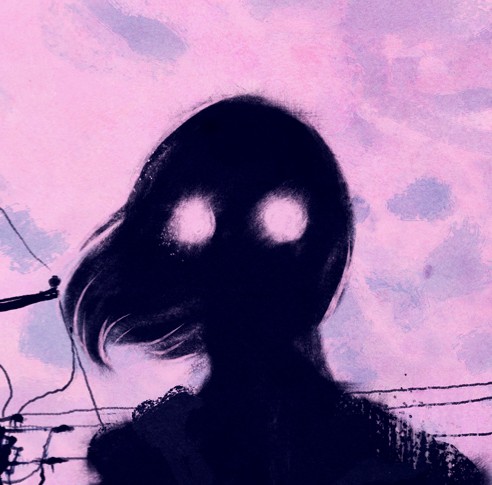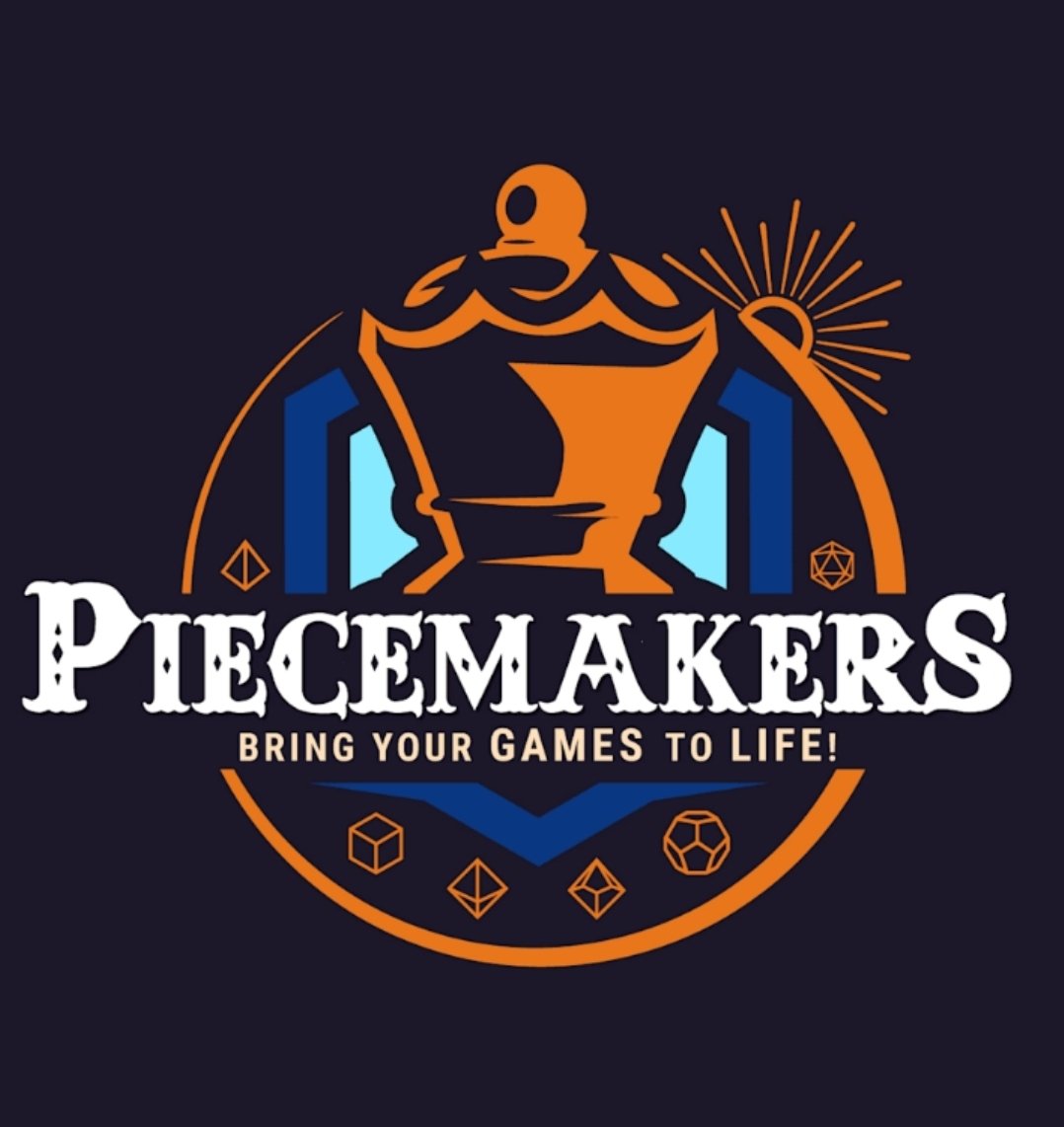People hate 4e and the books get dumped for cheap on ebay. Why do people hate it again?
Disclaimer : I never played 4e
Political : They changed the license of the basic-system from open to closed, thereby alienating 3rd party producers and lots of users. See the recent drama around the OGL.
Social/technical : It was different.
My own least favorite edition is 3.x (and PF—which sucks because I like the company, the setting, the characters) but I’d rather play 0e, B/X, 1e, 2e, RC, or 5e over 4E. I was playing B/X (with some of the guys who would later go on to make Mörk Borg) during the tail end of 4E, before 5e came out (which is when I started my own group).
There’s a lot of things that’s neat and good with 4E. Clarity, balanced classes, interesting–albeit–long-winded fights, neat art and settings, retro vibes.
Some of the problems only apply to the early days of 4E and was addressed as the game evolved:
• A bad initial release and marketing campaign that was seen as disparaging older fans while simultaneously begging “the game will remain the same”
• A fight against other editions and a push that “this is the game now”
• A switch to digital that was plagued with problems due to a horrible tragedy
• Broken monster math
• All classes felt overly similar in their play patterns. Not 100% identical but too similar
• Abilities that felt as if they were spells, like a fighter ability that makes all enemies take a step towards her
• Weirdly flavored / templated abilites that felt like “hitting the play button on a canned action” as opposed to actually doing itOther D&D (including late 4E): “I have this sword. I’m gonna chop 'em with it!”
Early 4E: “I am going to use this Reaping Strike ability.”To me, that can feel cold and distant. The fact that the powers came on cards that you’d flip as you used them was actually good overall, but it exacerbated this problem greatly. I get a lot of pushback on this from people who had gotten over it and could easily “translate” the abilities into game action, like “I strike them reapingly” or however that would sound, IDK, because I never learned to do it. I can write novels and poems and lyrics but I can’t strike reapingly. 🤷🏻♀️
4E Essentials (the later edition) get a lot of hate from fans of the original release but it has classes that I actually want to play.
Another issue I get pushback on is that some 4E fans love the “mythicness” of the martial power source. Samson with the jawbone, Flex Mentallo… And that’s fine, I’m happy for them. I personally prefer where spells are explicitly marked as spells, as 5E’s “Hunter’s Mark” ability is or the eldritch knight’s “Shield” spell, and magic items are similarly special. Like, we all love Luke Skywalker but he didn’t solely rely on the martial power source. He also had ki (or whatever the midichlorian heck is going on).
And some other problems persisted throughout the game’s entire run:
• A skill challenge system that was poorly explained (some people were like “always say you’re in a skill challenge”, others were like “no, just roleplay out a scene and as they are doing checks in the scene, mark progress”)
• A skill challenge system that has utterly broken math (throughout all three revisions, including the attempt in the Essentials Rules Compendium). The 5e version, “group checks”, also has problems, but fewer.
• Unnatural language. 5e had a push towards using natural language, or language that looked like natural language, over the arcane shorthand. This is a double-edged sword since it also helped with the clarity of 4E. 5.24 is back-pedaling a bit here, with capitalizing rules terms and conditions. Not my preference, I liked the natlang approach. Helps with rules-hacking and glogging and mashing together stuff from various editions the way I like it.
• Overwhelming in play with too many conditions and modifiers to juggle
• Not suited for the type of sandbox play I like. There are 30 levels and huge steps between the levels. So most people built encounters just-in-time, just to fit the party’s current level and capabilities (and when you do that, the DM has a lot of responsibility for the outcome of those fights). I prefer making a world with graduated difficulty and set the player characters free in that world; if it’s too easy they won’t get much XP so they’ll see harder pastures, and if it’s too hard they die, so they’ll try to find a lagom horizon on their own. And, they can freely use resources like town militias, religious warriors, pit faction-v-faction etc (we just came off a long “PCs+lizardfolk vs human slavers” skirmish campaign in our game)
• Killing the OGL!They also nuked a huge chunk of the lore of Forgotten Realms to ‘streamline’ it. Gods, locations, mainstay characters… gone.
Unsurprisingly they ‘fixed’ it in 5e.
poor Cadderly, man… all that work for nothing
deleted by creator
Oh boy. Buckle in, this is going to be a long one. This question crops up periodically on a number of other social media sites, and below is my answer to previous inquiries:
I think for some people, 4th Edition was exactly the sort of game they were interested in. But conceptually it was a departure from the aspects of 2nd edition, and even 3rd edition, which I’d come to enjoy.
Folks have said it was too “videogamey” and certainly it did seem to use some team-videogame concepts, though I wouldn’t say that was exactly what rubbed me the wrong way.
There were a few things wrong with 4E, but its biggest problem was that it was not 3E.
People instantly went crazy just because it was different from 3E. But 4E has A LOT of awesome ideas. And just because it was rejected with such fervor, all those awesome ideas were thrown away.
I really wanted 5E to be an evolution of 4E. If they did that, it would be the PERFECT RPG.
For me personally, 4e felt a lot less like, “Here’s a set of rules and lore to help you and your friends tell awesome interactive stories!”…
…and much more like, “Here’s the rules to a slightly more story and narrative driven, and more complicated, tactical miniatures combat game. Miniatures sold separately.”
Sure, you can play 4e without minis, but it really felt like the core of the game was built around the assumption that you had a big table, a DM that was into modeling terrain, and boxes of minis ready to go. Playing 4e without minis felt kinda like trying to make a pizza without cheese. Like sure, I guess you can, but it’s clearly intended to be a core ingredient.
So, I never played 4E, and mostly because it read so much like a videogame. And to be honest, I also feel like 5E still has that problem, though it’s not as bad. All the discussion on balance to the nth degree also reads to me a LOT like videogame design issues.
Personally, I think 3E really was / is the best edition of D&D. I looked at original D&D, way too limited in a ruleset - which kind of makes sense, it was sort of a beta before AD&D. I played AD&D 2e for like 5 years before 3e came out, and it was OK, especially as you house ruled in some stuff and added some of the other books, but it was also arcane (THAC0 anyone?) and you tended to really need to have various pages of rulebooks memorized or be able to find them quickly. It was the most GURPS like D&D I’ve ever played if that makes any sense.
3e really fixed like all of that. Everything is a d20 roll, and there’s some basic guidelines that are easy to get for the new DC concept (instead of looking up tables of saving throws etc). The open license meant LOTS of content, and it also meant that it didn’t die when a new edition came out, it evolved into Pathfinder (I gather, I haven’t actually looked at Pathfinder), and as I understand it, people can release new d20 compatible stuff TODAY if they want. It also had the benefit of the (sadly aborted) d20 modern, so you get some of the similar stuff as in GURPS with a simpler ruleset IMHO. That had some amazing ideas IMHO. However, in all of this, it’s paper based really and you can have skills, feats, mix and match from all over to what fits your game and world.
This leads to why I never went to 4e and what annoys me still about 5e. 4e had all the classes so focused on balance that fighters just were mages by different style if you will - from what I read anyway. And they pretty much stripped out anything not focused on tactical combat, which TBH is probably the least interesting reason to even play a tabletop RPG - play a game about that like a wargame, or a videogame.
And I still really dislike the “streamlined” skill system in 5e. It’s just atrocious IMHO - less skills, fixed skill based on ability points - they’re basically a bunch of saving throws but with 20 categories, fixed by class or feat proficiency… It just feels like you can’t have a unique character if every class X is going to have about the same skill numbers based on level (because you assume you’ll target abilities to be similar for a given class)…
IDK, I also think these new versions of D&D feel a lot like the new versions of Windows post 7 - we’re not changing anything but the superficial face of the game, and coming up with a reason to charge you to rebuy something that you presumably already like and has been working for a long time. I could see obvious improvements up to D&D3e, but not since then.
4e was incredibly rigid, for instance. Most editions when you cast fireball say ‘fireball does specifically this effect, but anything cool you can think of using this effect is fair game’. While 4e was much more ‘fireball does this and only this and even if it would immersion breakingly nonsensical for it to NOT do the other thing it still won’t’.
That was not one of the biggest problems of 4E at all.
I even think that, like the other answer to this comment said, leaving the fluff out of the description is not even a bad thing. It means I can add my own flavor to the spell.
I think that complaint is mostly about the kind of gamer you are. If you expect the game to provide everything for you, or if you like to add your own roleplay flavor on top of cool mechanics.
Maybe I just had a very rigid DM at the time as he wouldn’t let us do anything not explicitly within the spell discription.
I think that 4E was doing something similar to what some games like Dungeon World do.
The description of the Fireball spell in 4E is super short. But although it doesn’t say that the spell is supposed to burn stuff, it has the “Fire” keyword, it’s described as fire damage in the “Hit” part, and the fluff description mentions a flame that explodes. So I believe that the idea is to paint a general image of what the spell does, but leaving the actual flavor and consequences up to your gaming table.
Because one of the problems with D&D (be it 3E, 5E, or some other editions) is that they try to describe everything an action can or can’t do. But they can’t possibly list every possible consequence of any action, because they have limited space.
And this kind of rules book creates a mentality (in some players) of rules lawyers saying that if something obvious isn’t described, then it doesn’t happen. And if a game does that enough, it can create DMs that are too rigid instead of interpreting what’s happening in the world.
I remember there was a spell to create bonfire (or maybe it was something else related to fire), and it said that throwing water at the fire will extinguish the flames, or something like that. Do we really need a game to say that?
4E tried having terse descriptions, and leaving the rest up to you. I really like that. So it says that Fireball creates a flame that explodes, engulfing everything in its area. If one of it’s targets is holding an important letter (made of paper) in their hands, it should burn, even though burning things is not explicitly described.
There seem to have been some good ideas i 4e, but the overall game just didn’t appeal to me.
A lot of things felt samey. No matter if spells or abilities they all seemed to be very similar to the core with just a coat of flavour paint applied on top.
The balancing and the overall focus of the rules made it seem video gamey to me and that is/was already covered by actual video games and not what I want out of a tabletop rp experience.
To make matters worse the changes in their “primary” setting didn’t appeal much to me either (and apparently not to many others since they basically did away with most of it for 5e).
Homogenization and video-gaminess is what killed it for me too.
Heh. How long ya got?








